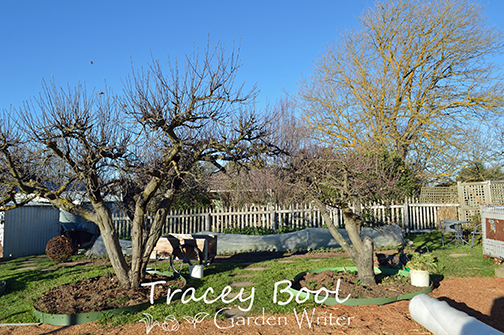|
Wynlen House Farm Braidwood
(17 July 2014) I recently braved the icy winds of winter to go on an exciting adventure to the rolling hills of Braidwood, where I met two outstanding individuals who have made growing and enjoying organic produce not only a hobby, but a way of living. The ‘micro-farm’ is located on the outskirts of town and is just under 1.5 acres. Bronwyn and her partner moved there from the coast in the late nineties and established Wynlen House Permaculture School in 2006. The couple started out with a veggie patch before introducing animals once they were more established. They now grow and sell free range meat direct to customers including pork, chicken, turkey and lamb. They also hold a weekly market stall to sell surplus produce, all seasonal of course. Most impressively, Wynlen House is self-sustaining, producing all of its inhabitant’s produce and meat requirements. Bronwyn has always had an appreciation for sustainable living and has been practicing permaculture ideals from a young age. In fact, she picked up her first copy of the iconic Earth Garden magazine as a teenager and has been developing her passion and knowledge base ever since. She integrates the farm and its production of food with the ability to educate, share knowledge, and embrace ‘slow living’. She works in cycles in regards to produce and meat grown on the property for the sake of the land and their lifestyle. Bronwyn practices and is advocate for intensive poly-culture, a term phrased by well-known American market gardener Eliot Coleman. Basically, she uses in-ground veggie plots where she grows multiple varieties together at any one time, all with differing harvest times and growth rates. This allows maximum use of all growing space, enabling you to produce substantially higher yields in comparison to more traditional monoculture growing methods. For instance, one bed is currently planted with both lettuce and cauliflower - the lettuce will be harvested after only a few short weeks, leaving the cauliflower to prosper and fill the space left behind. Another significant advantage of this approach to growing veggies is the ability to harvest progressively, avoiding the classic ‘feast or famine’ syndrome. There are several ponds nestled throughout the calming grounds of Wynlen, functioning as seasonal water chestnut beds (a recent and delightful addition to the couple’s culinary menu) and frog habitats. The beauty of having bodies of water in the garden is that they help to create cool microclimates in summer and warmer ones during winter. Also, interspersed in convenient locations around the farm, are sizeable compost piles insulated with bales of straw, which are dug into the mix later in the process. Bronwyn prefers the slow, or cold method of composting as it is less labour intensive, allowing her to set and forget. For information about Wylen House and upcoming courses see: http://www.wynlenhouse.com/workshops.html For more information about intensive poly-culture and organic market gardening, check out the invaluable text by Eliot Coleman (1995), The New Market Grower. For information about Earth Garden magazine see: http://www.earthgarden.com.au/ |

